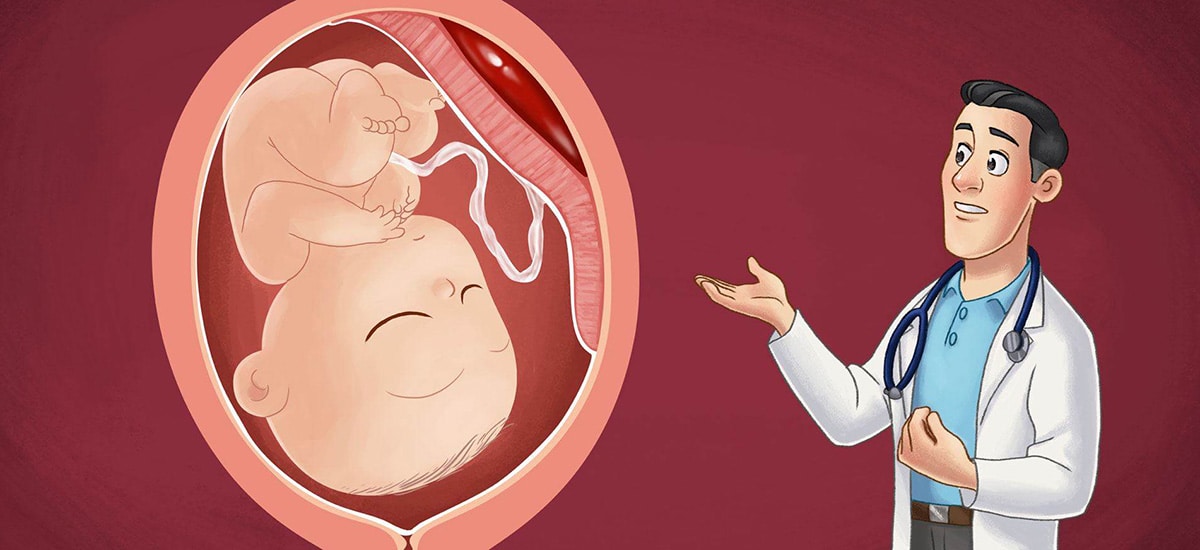
When you get pregnant you enter a new world, with vocabulary or concepts that although you have heard of them, and many of you know them, they unfold before you with new meanings. Because? Well, because those concepts become flesh in your body, in your experience.
One of these familiar old words is placenta. We already know that it is fundamental in pregnancy, that it is a structure that allows the life and development of the baby and other things that we have surely read here and there, or seen on TV, without paying attention (if pregnancy and maternity were still light years away from our present). Let's look today at a problem you may have the placenta: its detachment, what is it?
Placenta

As we said above, it is a fundamental organ in the gestation of the baby because provides nutrients and oxygen to the creature that gestates there for around nine months. In addition, it is so efficient that if on one side it puts nutrients through the other sand get rid of the waste of all this activity so that life develops in the best of environments.
Placenta is attached to the wall of the uterus and also has the umbilical cord. the placenta It can be attached to the uterus above, in front, behind, on one side o laterally, but there are cases where for some reason sticks on the bottom And if that happens, that the placenta is low, the doctors tell him "previous placenta".
If all goes well, the pregnancy proceeds uneventfully for nine months, wonderfully giving rise to a human being, but many factors can alter the normal functioning of this organ, complicating a pregnancy. Which is it? You know, the age of the woman, the rupture of the amniotic sac before the start of labor, multiple pregnancies, high blood pressure, coagulation problems, certain substances consumed by the pregnant woman or abdominal trauma, for example.
Placental abruption

Sometimes one of these problems can trigger placental abruption. It is not the only problem that they can generate, there is also an adherent placenta or placenta previa, but placental abruption is serious and can lead to a life-threatening emergency for the baby and the mother.
Why happens? The reasons are not known for sure, but the mechanism is clear: the placenta it comes off in the area where the mother's blood vessels join those of the fetus, there is a haemorrhage and as a result the placenta is detached.
As its name indicates, it is a detachment of the placenta from the wall of the uterus that It can be total or partial. If that happens it can complicate, reduce or directly block the passage of oxygen and nutrients to the baby and also that the mother suffers heavy bleeding.
You should know that placental abruption it is serious but rare, hardly affects the 1% of pregnancies, and that, if you go to the emergency room soon, it can be treated. When does it usually happen? Can occur in the last trimester.

What are the symptoms of placental abruption? You must be attentive to whether or not there is vaginal bleeding, although there may be a detachment without bleeding, or with intermittent or very light bleeding; abdominal or back pain that comes on suddenly and contractions.
How do doctors diagnose it? It makes a ultrasound. Although it is not as effective directly, it can detect fetal bradycardia, which is a consequence of hypoxia produced by placental abruption; one is also made cardiotocography, to assess fetal and uterine contractions, and a blood test to find out if there is anemia.
We know what it is, when it can occur, how it is diagnosed... and how can it be treated? This will depend on the condition of the mother and fetus, the degree to which the placenta has detached, and the gestational age of the baby. If the detachment is premature, in pregnancies under 34 weeks, we will wait until week 37 or 38 to induce delivery, extreme rest in between.
Is there something we can do like preventive measure? Well we can avoid smoking, be attentive to Not having folic acid deficiency, not taking drugs, always control ourselves if we are "elderly mothers" or suffer from Hypertension chronicle, either by pregnancy or from before.